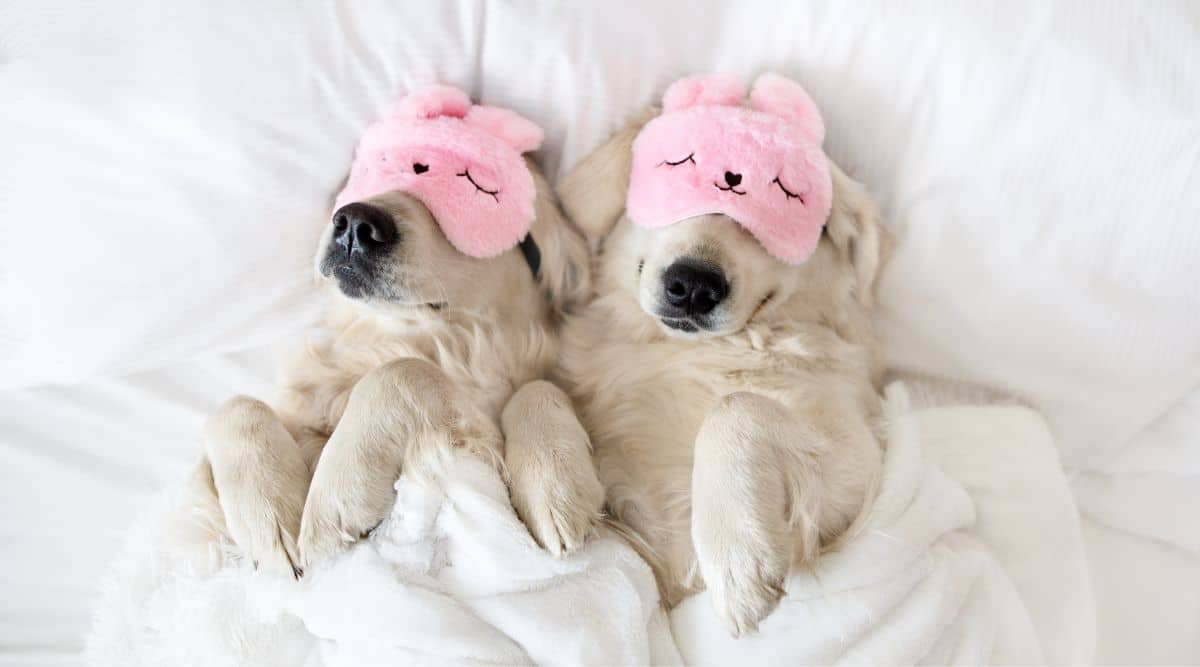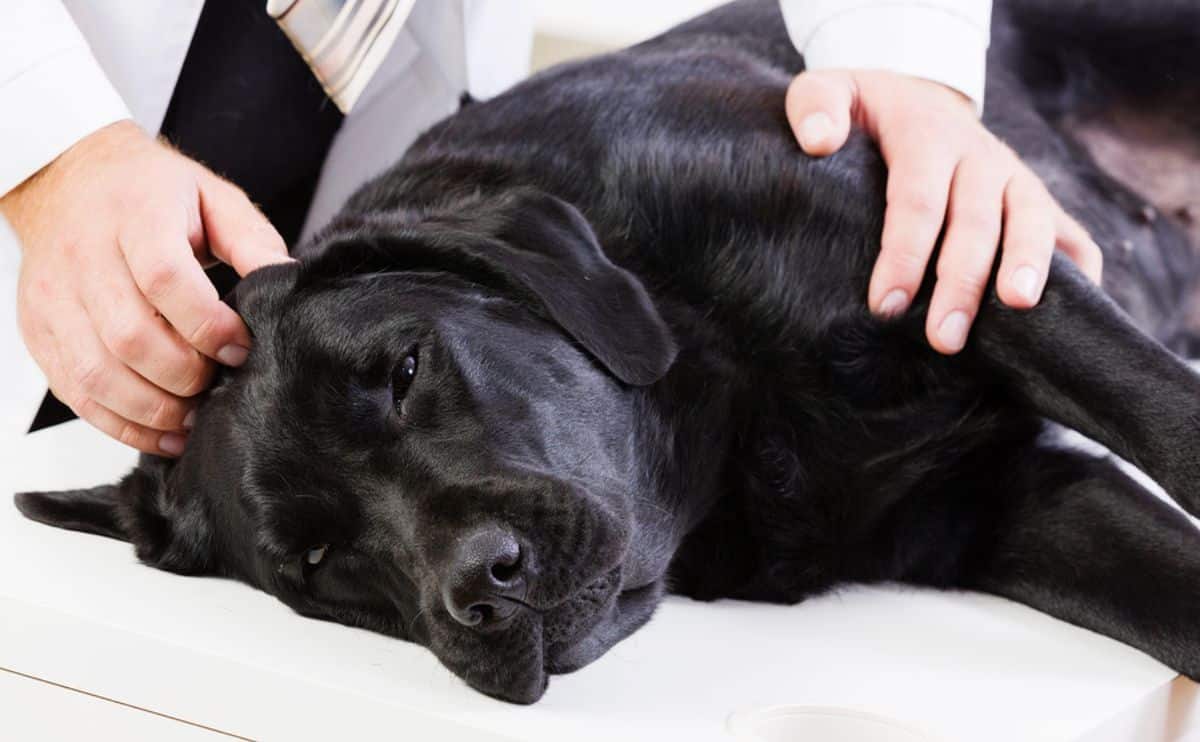Is It Illegal Not To Pick Up Dog Poop?
When you purchase through links on our site, we may earn a commission. Here’s how it works.
Some people bring joy to the neighborhood. Others let their dog take a dump on your lawn and walk away like it’s a gift.
Table of Contents
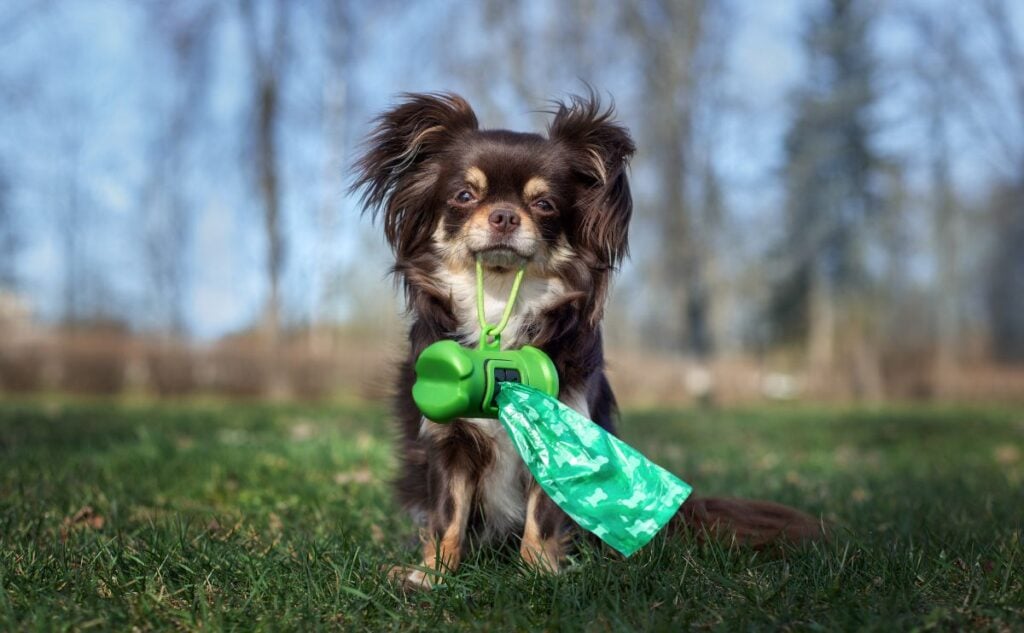
Look, as a longtime dog mom, I get it. Dogs have to do what they have to do. Yes, by that I mean poop, a lot. I’ve got an 80-pound poop machine I spend half my life cleaning up after. But if you’re one of those people who lets your furry friend drop a steamer and just struts away like nothing happened? Oh honey, we need to talk. That is not just bad manners. It‘s neighborhood villain behavior. The big question is, is it illegal not to pick up dog poop? I’m ready to find out because I am pretty sick of my front yard being the neighborhood dog potty.
The Front Yard Betrayal: A True Story of Poop and Pettiness
So, picture this. I’m in my living room, minding my business, living my peaceful homeowner life. I glance out the window, and boom. It’s happening again. My neighbor’s majestic German Shepherd is mid-squat on my lawn, looking like he owns the place. And, of course, the human on the other end of the leash? Walking away like they didn’t just leave a stinky gift on my newly planted grass. Fabulous. Truly. Nothing like surprise dog poop to start your day.
But wait, there’s more. Another neighbor, a lovely guy, has three tiny Chihuahuas. They are as cute as buttons. Chaos in fur form. He lets them roam the neighborhood every morning like it’s some kind of doggy version of recess. Where do they go? My lawn. Every. Single. Time. I guess the German Shepherd left a glowing five-star review. “Great spot. I highly recommend it. Soft grass. Strong aroma.”
And it’s not just my yard. Dog poop is everywhere. Parks. Sidewalks. Trails. It’s like some pet owners think the world is their dog’s personal restroom. Meanwhile, the rest of us are out here side-stepping little landmines like we’re in a high-stakes obstacle course. And don’t even get me started on the moment when it ends up on your shoes or, worse, tracked into your house. Nothing says “welcome home” like the faint squish of betrayal beneath your sock.
At this point, I’ve considered setting up a sign that reads, “Pick up your poop. Your dog can’t. What’s your excuse?” I also fully support public shaming. You leave a pile, and I see it? I will absolutely offer you a poop bag with a smile that says, “You know what you did.” And yes, I carry extras in my purse at all times. I may not be a superhero, but I’m definitely fighting crime.
Why Don’t People Clean Up After Their Dogs?
Ah yes, the age-old mystery: Why do some people think the laws of decency and gravity don’t apply to their dog’s poop? There are plenty of theories. Maybe they “didn’t see it” despite making direct eye contact with the scene of the crime. Maybe they “forgot a bag,” even though they remembered their phone, latte, and matching athleisure set. Or maybe, just maybe, they believe nature is one giant toilet that will magically absorb their dog’s deposit like it’s in a Disney movie. Spoiler alert: it won’t.
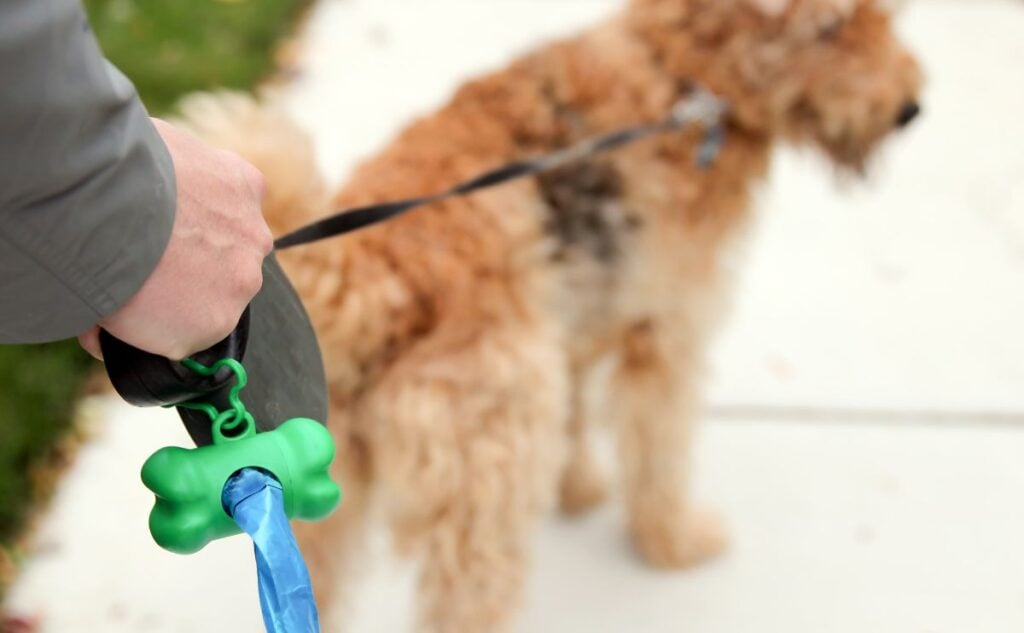
Some folks are just lazy, entitled, or operating under the wildly incorrect belief that “it’s good for the grass” (it’s not; it’s dreadful for the grass). Others are experts at the “fake reach,” you know, when they pretend to clean it up, then casually walk away as if nothing happened.
Cleaning up after your dog takes five seconds, costs nothing, and saves everyone from stepping in a surprise stink bomb. So why don’t people do it? Because some just haven’t realized that being a responsible pet owner includes a little humble poop patrol. Or they have and just don’t care.
Have you ever had a run-in with a rogue poop dropper? Do you have a neighbor who thinks lawns are public bathrooms? Drop your tale in the comments.
Why Picking Up Dog Poop Matters: It’s a Health Issue
As much as I wish this problem stopped at my lawn, it’s a whole lot bigger and a whole lot nastier than most people realize. We can all agree it is inconsiderate to leave your dog’s poop behind, but it is also a health issue. It’s no surprise that leaving feces around is not the most sanitary thing, and it can cause a host of issues for the environment and passersby.
Think of it this way, your dog’s poop is basically raw sewage. Dog feces carry viruses, bacteria, and parasites, which can cause diseases if passed on to other dogs or humans. It can contaminate the ground, water supplies, and any surfaces it comes in contact with. That abandoned dog waste is more than just a stinky and unsightly pile that you walk by and hope not to remember. It is a serious health hazard, and in some cases, the contamination of the area around it can last for weeks, months, or years.
Transmission can occur from direct contact with poop, fecal-oral transmission, or contact with a contaminated surface. Another fun fact: the longer dog poop sits on the ground, the higher the risk of contamination. This is because the bacteria and parasites grow, thrive, and spread while the poop sits.
What Lurks in the Lawn: The Gross Truth About Dog Poop
Do you know what is really hiding in that little pile your dog leaves behind? Spoiler alert: it is not just an eyesore. Dog poop is a biological landmine loaded with bacteria, parasites, and viruses. It is not fertilizer. It is a festering petri dish waiting to cause problems for pets and people alike.

Dog-to-Dog Danger: Diseases That Target Our Furry Friends
Leaving poop on the ground is not just inconsiderate. It is a health hazard. It creates an all-you-can-sniff buffet of bacteria and parasites for every other dog that walks by. Here is what your dog and everyone else’s dog could pick up from infected feces:
- Parvovirus: A highly contagious and potentially deadly virus that can survive in soil for up to a year. One sniff or accidental contact and your dog could suffer from vomiting, bloody diarrhea, and severe dehydration. Parvovirus treatment is intense and expensive.
- Canine Coronavirus: Not the COVID kind. This version attacks the intestines and spreads through contaminated feces. It causes diarrhea and general misery for infected dogs.
- Giardia: A microscopic parasite that thrives in contaminated water and poop. It leads to foul-smelling diarrhea, dehydration, and weight loss. It spreads easily, especially in shared spaces like dog parks.
- Whipworms, Hookworms, and Roundworms: These internal parasites love poop. Eggs are shed in feces and can stay in the soil for months. When another dog sniffs, licks, or even walks through contaminated dirt, the parasites can take hold and infect the digestive system.
- Coccidia: Another intestinal parasite, this one is especially hard on puppies and older dogs. It causes diarrhea that ranges from annoying to dangerous and spreads quickly in areas where waste is not picked up.
Now It’s Personal: Diseases That Can Spread to Humans
If you think you are safe because you are not the one sniffing poop, think again. Some of the nastiest pathogens found in dog feces can infect humans, too. And it does not take much. Contaminated hands, shoes, or soil tracked indoors can turn your home into ground zero for the next stomach bug or worse.
- Campylobacteriosis: This bacterial infection causes diarrhea, cramping, fever, and vomiting. It spreads easily through fecal contamination and can hit children, the elderly, and immunocompromised people especially hard.
- Salmonella: Yes, the same bacteria that ruins undercooked chicken can also live in dog poop. If an infected dog leaves a pile behind and someone comes into contact with it, the results are stomach cramps, fever, and a long-term relationship with the bathroom.
- Hookworms: These parasites are not just a problem for dogs. In humans, they can penetrate the skin, yes, actually burrow in, and cause an itchy, rash-like infection called cutaneous larva migrans. It is as creepy and uncomfortable as it sounds.
- Toxocariasis: Caused by roundworm eggs, this infection usually spreads when soil contaminated with feces ends up in a person’s mouth. Children playing outside are especially at risk. It can lead to serious complications like vision loss, organ damage, and even neurological issues.
- Giardia and Cryptosporidium: These parasites do not discriminate. They can infect both dogs and humans and cause diarrhea, cramps, and dehydration. If they get into water sources, they can cause large outbreaks.
- E. coli: Another dangerous bacteria that is found in dog waste. If it makes its way to your hands, food, or mouth, it can cause painful gastrointestinal issues and even more serious complications in vulnerable individuals.
Scoop It. Bag it. Toss it. Save the Neighborhood. Be a Poop Hero.
Dog poop is not harmless. It’s a disease delivery system on four legs. It’s a threat to pets and people and a major health risk in your neighborhood. Every uncollected pile adds to the problem. Picking up after your dog is not just about being polite. It is about protecting your community, your pets, and your family. The only thing worse than stepping in it is realizing it did not have to be there in the first place.
Is It Illegal Not To Pick Up Dog Poop?
Is it actually illegal to leave dog poop behind? Or is it just wildly inconsiderate? The answer: a bit of both.
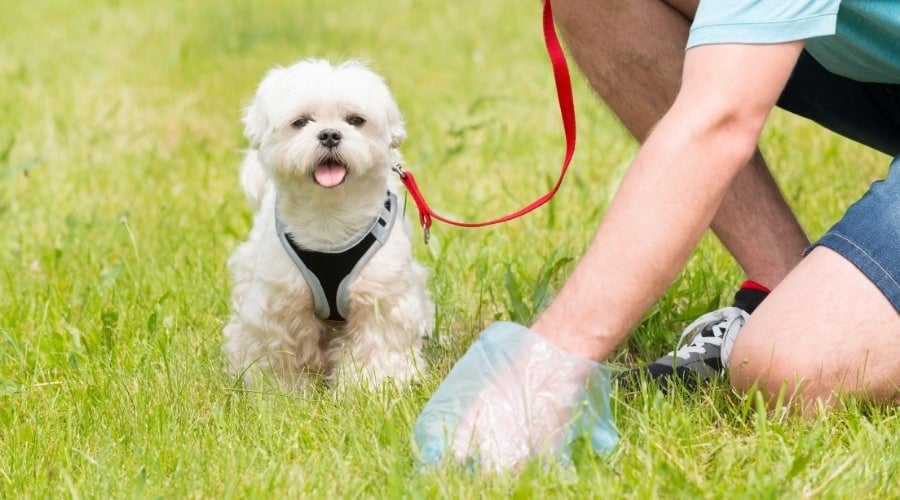
There’s no federal pooper-scooper law, but almost every state and city has its own version, often hidden in public nuisance, sanitation, or animal control ordinances. Translation: If your dog poops and you leave it, you’re almost definitely breaking some kind of rule.
Pet waste is recognized as an environmental pollutant at the federal level. The U.S. Environmental Protection Agency (EPA) classifies dog feces as a non-point source pollutant, meaning that runoff containing pet waste can contaminate waterways.
Fun fact: abandoned dog poop is a leading cause of water pollution in urban areas. Under the Clean Water Act , municipalities must manage stormwater runoff (which can include pet waste), so many local governments have public education and ordinances to reduce pet waste in the environment.
On federal lands (like national parks), rules typically require pet owners to “bag and remove” dog waste as part of Leave No Trace principles, though enforcement is handled through park regulations rather than a general federal statute. Overall, the federal role mostly consists of guidance and environmental regulation, while state and local authorities set actual cleanup laws.
Pooper Scooper Laws
Picking up after your dog seems like common sense and courtesy, but there is a long history of people choosing not to. The first dog poop law on record was enacted in 1978 in New Your City, New York. The effort was started by a mom who was sick and tired of her kids going outside and playing in dog poop-covered parks and lawns.
The First Pooper Scooper Law
New York State Public Health Law 1310 , also known as the “Poop Scoop Law,” took effect on August 1, 1978. This legislation mandated that dog owners clean up after their pets in public spaces. Violators could be fined, and enforcement began with a mix of education and, eventually, tickets. The initiative improved the city’s cleanliness and set a precedent for other municipalities all over the country.
Pet Waste Laws in the United States
Pet waste laws are usually part of local ordinances related to sanitation or public nuisance. Fines can range anywhere from twenty-five dollars to several hundred dollars, depending on where you live and how grumpy your city council was when they wrote the rule. And if your dog leaves their business on private property and you walk away like a ghost in the night? You could be trespassing, too. That is a legal double whammy with a side of neighborhood infamy.
Poop Happens. HOA Drama Doesn’t Have To
It’s not only illegal to leave your dog’s poop behind, but you can also face civil penalties such as fines or legal retribution from Home Owner Organizations (HOA) or community groups.
I’m on the board of my Home Owner’s Association (HOA), and we get frequent complaints about dog poop not being removed. In one case, we’ve been considering putting up a surveillance camera for a repeat (owner) offender who doesn’t clear his dog’s poop along a sidewalk that’s adjacent to his home, but this space is considered “common grounds” in our neighborhood. While not illegal per se, our HOA could fine him heavily. If he doesn’t pay his fines, the HOA could take him to court to require him to pay the fines. However, we never hold homeowners accountable for dog poop on their property from other owners who don’t clean up the waste from their dogs.
–Sally Jones, Rescue Dog Parent, Writer & Editor for Canine Journal
State and Local “Pooper Scooper” Regulations
Along with being a health hazard and a social faux pas, leaving dog poop behind is often flat-out against the law. That means I am not just being dramatic when I call these people poop bandits. I am being legally accurate.
Failing to pick up dog poop can lead to hefty fines. Penalties vary widely by location, and repeat offenses often carry higher fines. Here are a few examples of strict laws and penalties in the U.S.:
- Albuquerque, NM: Albuquerque requires pet owners to clean up waste left by their dogs on any property other than their own. Violations can result in fines of up to $500 or a 90-day jail sentence upon conviction.
- Austin, TX: The Austin City Code § 3-4-6 mandates that pet owners must promptly remove and sanitarily dispose of feces left by their dogs or cats on public or private property not owned by the pet owner or handler. Those who fail to scoop the poop face fines of up to $500. Texas cities like Austin and Houston incorporate pet waste rules in local codes, sometimes enforcing them as part of anti-pollution efforts.
- Baltimore, MD: Baltimore takes pet waste management seriously, with fines ranging from $100 to $1,000 for failing to clean up after one’s dog in public spaces. These regulations underscore the importance of responsible pet ownership and aim to maintain cleanliness and public health in urban environments.
- Chicago, IL: Chicago mandates that dog owners remove any feces left by their pets on public property.The fines for non-compliance range from $50 to $500.
- Hawaii (statewide): In Hawaii, pet owners are legally obligated to clean up after their animals in public and private spaces. Failure to do so is considered a violation of the state’s littering laws . There is a $500 civil penalty for each violation under Hawaii’s pet waste law. This law treats uncollected dog waste as littering, reflecting the state’s hard line on keeping public areas clean.
- Los Angeles, CA: In Los Angeles, California, dog owners are legally required to clean up after their pets in public and private spaces. Violators face fines of up to $500 under Los Angeles Municipal Code (LAMC) Section 53.49 . Many other California cities have similar penalties, even though California has no single statewide poop-scooping law.
- New York City: Dog owners must clean up after their pets in all public areas, this includes sidewalks, streets, and gutters. Offenders can earn a fine of up to $250 for violating the city’s Pooper Scooper law. The law is enforced by New York City Department of Sanitation (DSNY) officers.
- Phoenix, AZ: Pet owners are legally obligated to clean up after their animals to maintain public health and environmental quality. The city’s regulations specify immediate cleanup and proper disposal. Violations are classified as a Class 1 misdemeanor, punishable by a fine ranging from $250 to $2,500 and imprisonment for up to six months. Additionally, violators must make restitution to the city for all cleanup and disposal costs incurred.
- Pittsburgh, PA: According to the City of Pittsburgh’s regulations , allowing a dog to defecate on public or private property without immediate cleanup is considered a nuisance violation. This includes areas such as sidewalks, parks, and neighbors’ yards. The first offense gets a fine of up to $100. Subsequent offenses can garner penalties of up to $500. Owners risk the possibility of imprisonment not exceeding 72 hours if fines are not paid.
- Washington, D.C.: Owners must promptly remove their dog’s feces from any public or private property. The waste should be disposed of in a closed container or receptacle designated for trash or public waste. Fines range from $150 for first offenses and up to $2,000 for chronic violators. The District’s high maximum fine (one of the steepest in the U.S.) shows how seriously it views pet waste as a public nuisance and health hazard.
Even smaller towns often have $25, $100, or $250 fines to deter negligent pet owners. In short, wherever you are in the U.S., there is likely a law on the books requiring you to “scoop the poop,” with financial penalties for those who don’t.
Picking The Best Pooper Scooper
Picking up dog poop is a daily chore of pet parents, one we have no choice but to accept. Rain, shine, snow, the poop will always be there. Thankfully, there are tools to help with this stinky task. Pick up a high-quality pooper scooper and invest in plenty of poop bags. This way, you are at least prepared for whatever doodie disaster may come your way. Not all pooper scoopers are created equally. The right one for you depends on your dog’s size, poop habits, and your comfort. You can learn more about our top picks and personal experience in this detailed pooper scooper guide. If you really dislike scoping the poop, consider a professional pooper scooper service.

Dog Poop Laws: Frequently Asked Questions
When it comes to dog poop, the rules aren’t always as obvious as they should be, but ignorance doesn’t stop the stink or the fine. I’ve answered a few commonly asked questions below, but if I didn’t get to yours, let me know in the comments. You can also head over to our forums to discuss more dog poop-related problems with other pet parents and experts.
Is it illegal to leave dog poop in someone’s yard?
Yes, in most areas, it is illegal not to pick up your dog’s poop from someone’s yard. Abandoning poop on private property can be considered trespassing, littering, or even property defacement. Property owners have the right to maintain a clean and safe environment on their land, and leaving pet waste behind violates that right. Be a good neighbor, carry a bag, and scoop that poop.
Can I get fined for my own dog’s poop in my yard?
Most of the time, no, but this depends on where you live and how much poop is in your yard. If you don’t clean it up regularly and it starts to create a health hazard, attract pests, or generate strong odors, you could be in violation of public nuisance or sanitation laws, especially in cities or counties with strict property maintenance codes.
Your neighbors may also have the right to report excessive pet waste if it’s causing issues near property lines, shared fences, or communal areas. And if you live in a neighborhood governed by a HOA, you’ll definitely want to check the rules.
Can I sue someone for leaving dog poop in my yard?
Yes, you can sue someone for repeatedly allowing their dog to poop in your yard and not cleaning it up, but whether you should depends on the situation. Legally speaking, what they’re doing may qualify as trespassing, property damage, or creating a nuisance, all of which can be grounds for a small claims lawsuit.
Documentation is key. Take photos, keep a log of incidents, and, if possible, capture video evidence. You can also file a formal complaint with your local animal control or code enforcement office, which might resolve the issue without stepping foot in court.
5 Wild and Weird Dog Poop Facts You Never Knew (and Maybe Wish You Still Didn’t)
Get ready for some knowledge you never asked for: a few wild and crazy dog poop facts, steaming hot and historically weird. This is the kind of knowledge you didn’t ask for but won’t forget.
1. Dog Poop: The Original Leather Conditioner
Long before fancy creams and mink oil, ancient tanners used dog feces, yes, poop, to soften animal hides. It turns out dog feces contain enzymes and ammonia that help break down collagen in leather. In medieval Europe, tanners called it “puer,” and it was literally collected by hand. Some kids even earned extra money collecting it in buckets. This information has shaken me to my core as someone who wishes she could bottle the smell of high-quality leather. Dog poop on my leather boots? This puts things in an entirely different light.
2. Victorian England Had Professional Poop Collectors
Known as “pure finders,” these folks roamed the streets collecting dog droppings to sell to tanneries. This was a legit (if pungent) job in 18th and 19th century London. Imagine walking through the city, seeing someone scooping poop, and thinking, “Wow, now that’s an entrepreneur.” At the same time, it’s a dirty job, and someone has to do it; I commend the courage of those brave souls.
3. Dog Poop Can Glow Under UV Light
If you’ve ever wanted to make your backyard feel like a forensic crime scene, break out a black light . Some compounds in dog feces, especially those related to bacteria, can fluoresce under UV. Yes, It is gross. It is science. It’s also how some pet owners track hidden poop at night. CSI: Canine Scene Investigation. With a regular backyard crew of three dogs, I don’t want to try this one at home.
4. There’s a Dog Poop DNA Database
Some apartment complexes and housing communities have gotten so fed up with repeat offenders that they’ve turned to science. They swab dogs’ mouths, collect DNA, and match future rogue poops to the party responsible. It’s poop-powered CSI, and yes, the guilty get fined. Welcome to the future. You can learn more about it in our detailed guide on dog poop DNA.
5. Ancient Romans Used Dog Poop for Teeth Whitening (Yes. Seriously.)
This fun fact is not for the faint of heart or for those folks with a sensitive stomach. The Romans had a love affair with ammonia , which is found in urine and, you guessed it, aged dog poop. They used it in everything from cleaning laundry to whitening their teeth. There you have it. The next time you feel like you’re going overboard with your dog’s poop bags, just remember, at least you’re not brushing your teeth or washing your clothes with it.
Your Dog’s Poop Is Telling You Something: Are You Paying Attention?
That daily bathroom break isn’t just a potty stop. It’s a free health report. Veterinarians examine dog poop the way detectives analyze crime scenes. The color, shape, texture, and smell can reveal everything from dietary issues to serious medical conditions. Pale or gray might signal liver trouble. Black and tarry could mean internal bleeding. Mucus? Often a sign of parasites. It may be gross, but it is also incredibly useful.
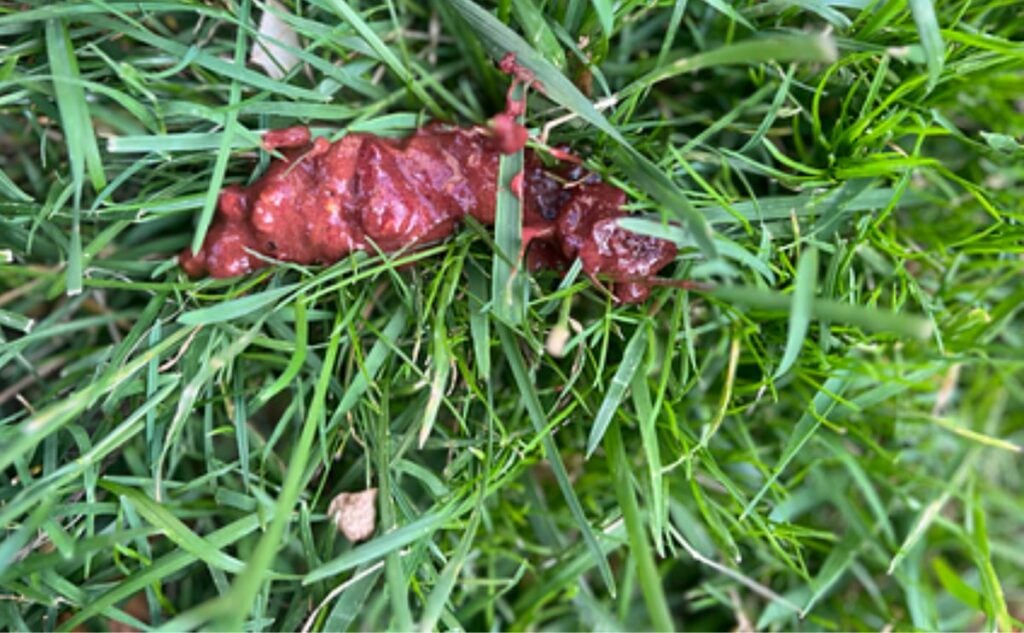
Next time your dog does their business, take a second to glance before you scoop. Picking up after your pet isn’t just about being a good neighbor. It’s also about being a responsible and informed dog owner. If you are worried about your pup’s poop behavior, like rolling in it or eating poop, or are concerned by the poop quality, reach out to your veterinarian and schedule a check-up.
You Are What You Eat: And So Is Your Dog’s Poop
A healthy, balanced diet leads to healthy, firm, and easy-to-scoop poop. When your dog eats real, digestible ingredients, their body doesn’t have to fight to process mystery meat and filler grains. The result? There are fewer surprises in the yard; your dog has better gut health and significantly less stinky poops.
Want to boost your dog’s diet and their digestive health? Consider adding fresh or human-grade dog food to their routine. These options are made with recognizable ingredients, such as animal proteins like real chicken, beef, turkey, fish, and vegetables like sweet potatoes or spinach, and can dramatically improve digestion. Freeze-dried raw foods are another great addition, offering a boost of nutrients with minimal processing and a long shelf life. Mixing a little high-quality fresh or freeze-dried food into their kibble can make a noticeable difference.
Why Trust Canine Journal?
Danielle has over thirty years of dog care experience. She has dealt with a literal ton of dog poop. Danielle picks up dog poop every day of her life and knows how important it is to keep her community clean and safe for everyone. Danielle is a dedicated professional researcher and pet product reviewer. She spends countless hours researching the latest pet care, health, food, and training developments. Her two dogs, Daisy and Falkor, serve as in-house food and product testers. Danielle works with a professional and experienced team to bring the best, most accurate, and most up-to-date information to our readers.

